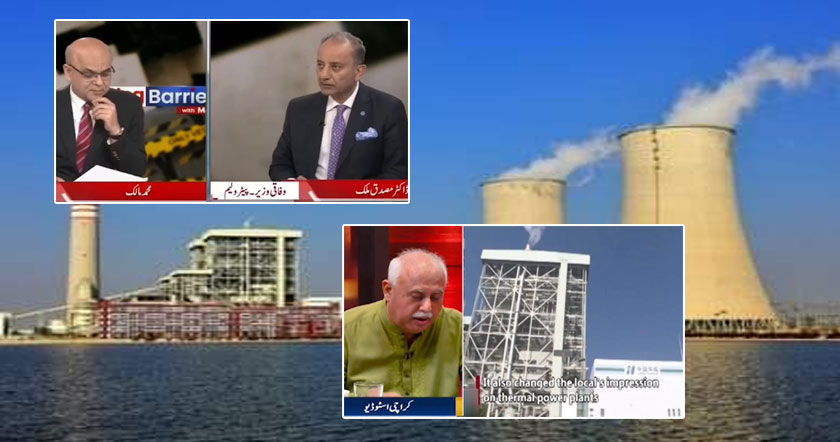Industrialization has been fundamental to economic development. Only in circumstances such as extraordinary abundance of land or resources have countries succeeded in developing without industrializing, and Middle East also is not an exception. The Economy of the Middle East is very diverse. Composed of Bahrain, Cyprus, Gaza Strip, Egypt, Iran, Iraq, Iraqi Kurdistan, Israel, Jordan, Kuwait, Lebanon, Oman, State of Palestine, Qatar, Saudi Arabia, Sudan, Syria, Turkey, United Arab Emirates, and Yemen.
Oil & Gas Sector
Oil accounts for a large percentage of the world’s energy consumption, to a high of 53% for the Middle East. The Middle East is the region that encompasses a major part of Western Asia and Egypt. The following countries are included within the Middle East Region: Bahrain, Cyprus, Egypt, Iran, Iraq, Israel, Jordan, Kuwait, Lebanon, Northern Cyprus, Oman, Palestine, Qatar, Saudi Arabia, Syria, Turkey, United Arab Emirates Yemen Middle East is well known for its petroleum reserves. There are Middle Eastern nations such as Saudi Arabia, the UAE and Kuwait that are heavily dependent on export of only oil and oil-related products.

Construction Sector
With the 2020 FIFA World Cup in Qatar and 2020 World exposition in Dubai, the real estate sector is witnessing an ascent in ongoing growth and development. According to a report on economic impact of World Expo 2020 by Oxford economics, Dubai is expected to have 277,000 jobs, with 77,149 being created between 2013-2021. While Qatar and UAE have emerged as the largest construction markets, Saudi Arabia too has seen growth in this sector with its already ongoing diversification and expansion.
Apart from these countries, Iran too has diversified its construction industry. With 98% of the Iranian real estate being run on private investment, projects have been introduced, increasing the demand for skilled architects, project managers and civil engineers from all across the world.
Hospitality Sector
Hospitality is one of the most heavily employing sectors in the Middle East, especially in places like Dubai, Doha and Makkah.
According to a survey by E&Y, the Doha hospitality market continued to record a positive growth during 2014 with RevPAR increasing by approximately 18.7% in May 2014. Similarly Manama also recorded a growth of 36.3% in May 2014 when compared to the same period last year. Dubai on the other hand has recorded 5.82 million tourists checking into its 634 hotels.
 In addition to this, the Bahraini hotel industry has also shown employment potential by recruiting 16.7% of the expat workforce. Among the GCC countries, Saudi Arabia has the largest hospitality market with 46% of the international tourists and GCC preferring this country.
In addition to this, the Bahraini hotel industry has also shown employment potential by recruiting 16.7% of the expat workforce. Among the GCC countries, Saudi Arabia has the largest hospitality market with 46% of the international tourists and GCC preferring this country.
Food Sector
One of the key factors resulting in the growth of this sector is the rapidly increasing population across the Middle East. According to a report by alpenapital.com, with the population having increased at an annual average rate of 3.3% compared to the global average of 1.1% during the last decade and with the number predicted to go as high as 50 million by 2020, food consumption is also expected to reach 49.1 million metric tons by 2017.
To meet this increasing demand for food arising out of the growing consumption, the food industry is rapidly expanding in countries like Saudi Arabia, Bahrain, The UAE, Qatar, Oman and Kuwait.
Almaria, Savola and Kuwait food companies have come up as the market leaders and major recruiters in this sector.Saudi Arabia is the country with the most prominent food sector, with food consumption expected to grow by 8% during 2014 with a compound annual growth rate of 7.8% from 2013 to 2017.It is clearly visible that with statistics this high, the food sector in the Middle East stands out as a perfect alternative for job seekers in the region and across the globe.
Employment Statistics
According to a report by IMF, Economic growth in countries like Saudi Arabia, UAE, Qatar, Oman, Kuwait and Bahrain has largely been labor intensive triggered by large inflow of expats from countries across the globe.
Employment has increased by numbers like 0.75% in Oman, 1.77% in Dubai, 0.45% in Qatar and 1.53% in Oman. Moreover, between 2000-2010 approximately 7 million jobs were created, out of which more than 5 million went to expatriates with desired skills in their respective fields.
The economic sectors across these countries are expected to hire 6 million new workers with more than 2/3rd being expats.

A 2014 survey conducted by com with over 400 recruiters indicated that 64% of the recruiters in the Middle East anticipated new jobs, post July 2013.
As far as talent crunch is concerned 36% of the recruiters said that they faced difficulty while hiring nationals due to absence of necessary skills and competencies, hence preferring expats for the job. The survey also indicated 70% of the recruiters in the oil and gas sector and 58% of the recruiters in the construction and engineering sector anticipating an ascent in job opportunities in their respective fields.
With exponential growth in all the economic sectors, the Middle East is on its way to provide jobs to every individual with the desired skill set and talent. Be it the food, finance, construction or hospitality sector, hiring rates are on the rise.
The Middle East has proven itself as the ideal destination for all job seekers. It all depends on the individual’s flair in a field and the zeal to excel.
Source: Big industries and employment in Middle East
Oil & Gas Sector
Oil accounts for a large percentage of the world’s energy consumption, to a high of 53% for the Middle East. The Middle East is the region that encompasses a major part of Western Asia and Egypt. The following countries are included within the Middle East Region: Bahrain, Cyprus, Egypt, Iran, Iraq, Israel, Jordan, Kuwait, Lebanon, Northern Cyprus, Oman, Palestine, Qatar, Saudi Arabia, Syria, Turkey, United Arab Emirates Yemen Middle East is well known for its petroleum reserves. There are Middle Eastern nations such as Saudi Arabia, the UAE and Kuwait that are heavily dependent on export of only oil and oil-related products.

With the 2020 FIFA World Cup in Qatar and 2020 World exposition in Dubai, the real estate sector is witnessing an ascent in ongoing growth and development. According to a report on economic impact of World Expo 2020 by Oxford economics, Dubai is expected to have 277,000 jobs, with 77,149 being created between 2013-2021. While Qatar and UAE have emerged as the largest construction markets, Saudi Arabia too has seen growth in this sector with its already ongoing diversification and expansion.
Apart from these countries, Iran too has diversified its construction industry. With 98% of the Iranian real estate being run on private investment, projects have been introduced, increasing the demand for skilled architects, project managers and civil engineers from all across the world.
Hospitality Sector
Hospitality is one of the most heavily employing sectors in the Middle East, especially in places like Dubai, Doha and Makkah.
According to a survey by E&Y, the Doha hospitality market continued to record a positive growth during 2014 with RevPAR increasing by approximately 18.7% in May 2014. Similarly Manama also recorded a growth of 36.3% in May 2014 when compared to the same period last year. Dubai on the other hand has recorded 5.82 million tourists checking into its 634 hotels.

Food Sector
One of the key factors resulting in the growth of this sector is the rapidly increasing population across the Middle East. According to a report by alpenapital.com, with the population having increased at an annual average rate of 3.3% compared to the global average of 1.1% during the last decade and with the number predicted to go as high as 50 million by 2020, food consumption is also expected to reach 49.1 million metric tons by 2017.
To meet this increasing demand for food arising out of the growing consumption, the food industry is rapidly expanding in countries like Saudi Arabia, Bahrain, The UAE, Qatar, Oman and Kuwait.
Almaria, Savola and Kuwait food companies have come up as the market leaders and major recruiters in this sector.Saudi Arabia is the country with the most prominent food sector, with food consumption expected to grow by 8% during 2014 with a compound annual growth rate of 7.8% from 2013 to 2017.It is clearly visible that with statistics this high, the food sector in the Middle East stands out as a perfect alternative for job seekers in the region and across the globe.
Employment Statistics
According to a report by IMF, Economic growth in countries like Saudi Arabia, UAE, Qatar, Oman, Kuwait and Bahrain has largely been labor intensive triggered by large inflow of expats from countries across the globe.
Employment has increased by numbers like 0.75% in Oman, 1.77% in Dubai, 0.45% in Qatar and 1.53% in Oman. Moreover, between 2000-2010 approximately 7 million jobs were created, out of which more than 5 million went to expatriates with desired skills in their respective fields.
The economic sectors across these countries are expected to hire 6 million new workers with more than 2/3rd being expats.

A 2014 survey conducted by com with over 400 recruiters indicated that 64% of the recruiters in the Middle East anticipated new jobs, post July 2013.
As far as talent crunch is concerned 36% of the recruiters said that they faced difficulty while hiring nationals due to absence of necessary skills and competencies, hence preferring expats for the job. The survey also indicated 70% of the recruiters in the oil and gas sector and 58% of the recruiters in the construction and engineering sector anticipating an ascent in job opportunities in their respective fields.
With exponential growth in all the economic sectors, the Middle East is on its way to provide jobs to every individual with the desired skill set and talent. Be it the food, finance, construction or hospitality sector, hiring rates are on the rise.
The Middle East has proven itself as the ideal destination for all job seekers. It all depends on the individual’s flair in a field and the zeal to excel.
Source: Big industries and employment in Middle East

































